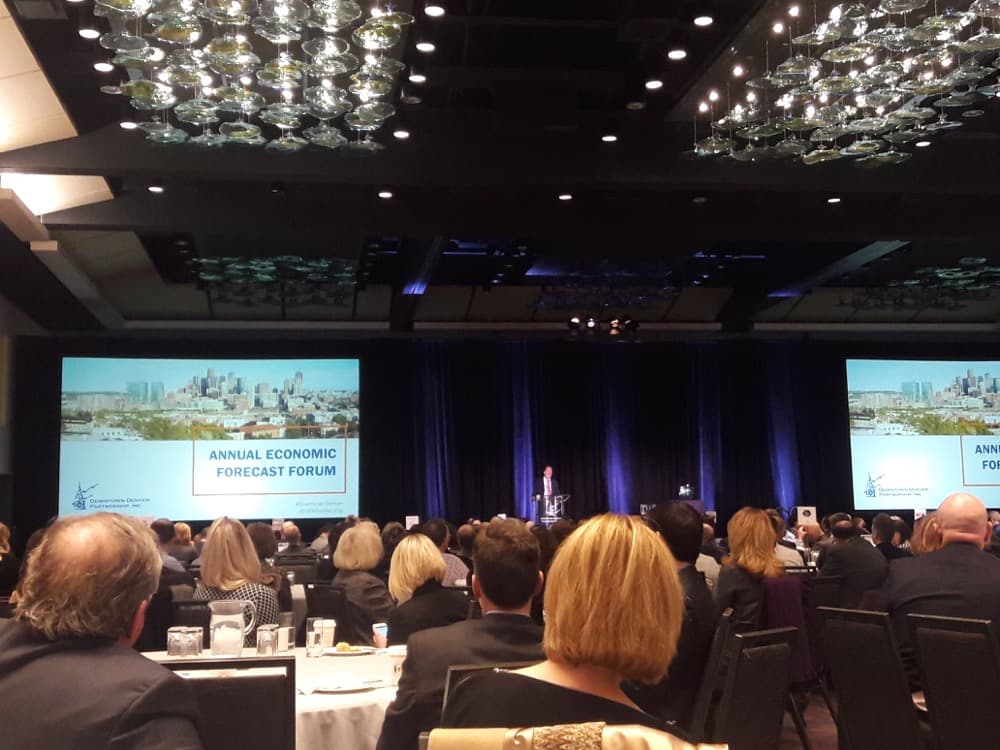
A prominent business analyst gave one economic explanation Thursday in Denver of why despite political uncertainty, financial markets are booming in America.
Tim McGee, the director of macro strategy and research at the financial firm U.S. Trust, mentioned key terms like "yield curves," "secular stagnation," "reflation" during the Downtown Denver Partnership's Annual Economic Forecast Forum. But overall, McGee's message was simple: America's on track to reach at least its third longest economic expansion and no recession appears to be in sight — especially with the rise of populism and the presidential election of Donald J. Trump.
There's reportedly a renewed confidence from companies, especially small businesses, after the election.
"Before populism, there was no hope for change because we had a jaded elite that was unable to make the changes that the economy is demanding to move into the future," McGee said. "They were just perpetuating a failing status quo that was giving us secular stagnation."
For those not versed in the religion of economics, "secular stagnation" basically means businesses and individuals weren't investing in the country so the economy stayed hurt or flat.
Globally, right-wing political groups have been rising in prominence and political power. Last year, the U.K.'s Conservative Party came into power after Britain Brexited — voted to leave the European Union. The move was somewhat unexpected and thought to be a forebearer of terrible things to come for the global economy.
"The other thing people were sure about that didn't happen was Hillary Clinton would win the election and that would be the best for a stable continuation of the recovery of the United States, whereas a victory by Donald Trump would be a disaster that would cause all kinds of volatility," he said. "And just like with Brexit, we haven't seen that. In a number of regards, we've seen the opposite."
Prior to Trump's election, "the federal government has been a counterproductive contributor to the economy instead of a positive facilitator of business," McGee said. "Breaking gridlock, and particularly breaking it by having a Republican Congress and a pro-business administration, means we're looking at the kind of regime change that we haven't seen since back when Reagan and Thatcher caused a shift back to a pro-business environment at the tail end of the last period where we had a long drift to the left."
To be fair, Trump is just days into his presidency, economists disagree about how sound the financial markets are and prior to the current recession, the deepest post-World War II economic downturn occurred under President Ronald Reagan.
Subscribe to Denverite’s newsletter here. Business & data reporter Adrian D. Garcia can be reached via email at [email protected] or twitter.com/adriandgarcia.












